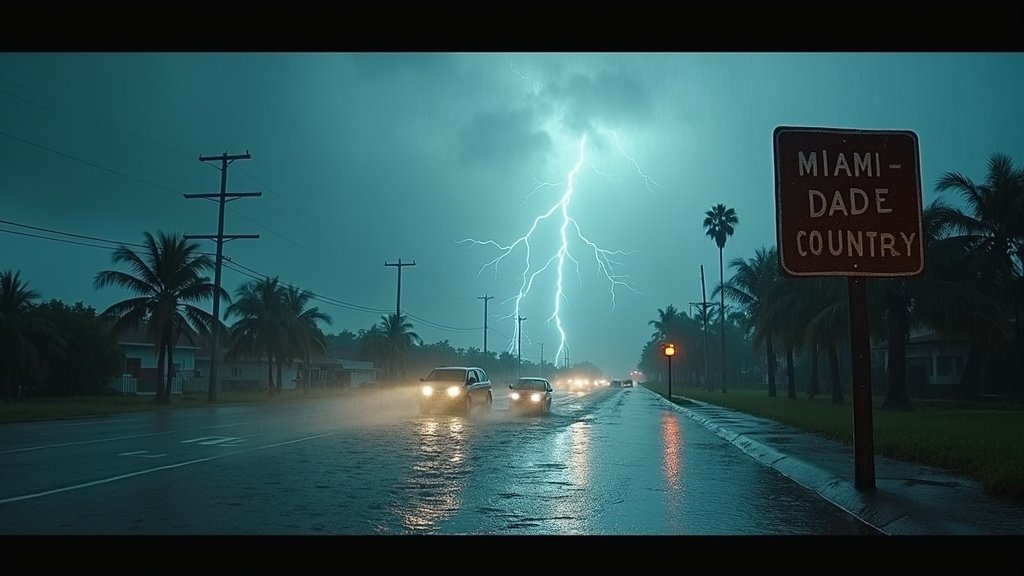Trump Administration Rescinds $60 Million Grant for Miami’s Overtown Underdeck Park Project
In a significant development for urban renewal in Miami, the Trump administration has officially rescinded a substantial $60 million grant that had been previously awarded to the ambitious Underdeck park project in Overtown. This move, enacted through legislation known as the “One Big Beautiful Bill,” marks a sharp reversal for a project designed to heal historical urban rifts and create much-needed green space.
Reconnecting Communities Program Impacted
The grant in question was a key component of the Biden administration’s “Reconnecting Communities” program. This federal initiative was specifically established with the stated goal of rectifying the deep-seated damage caused by past highway construction projects, many of which disproportionately impacted minority and low-income neighborhoods by carving through communities and creating physical and social barriers.
The Underdeck park project in Miami was a flagship endeavor for this program, aiming to address the isolating effects of the massive Interstate 95 (I-95) and Interstate 395 (I-395) highway construction that took place in the 1960s. These mega-projects, while intended to improve transportation, famously cleaved through the heart of Overtown, a vibrant historic neighborhood, leaving lasting scars.
The Vision for Overtown’s Underdeck
The Underdeck project envisioned transforming a sprawling 33-acre area in Overtown into a significant public park. The plan was to create a vibrant, accessible space that would not only provide recreational opportunities but also serve as a powerful symbol of restorative justice, reconnecting neighborhoods that had been physically divided for decades. The design aimed to mitigate the literal and figurative impact of the elevated highways that cast shadows over the community.
Crucially, the total budget for the Underdeck project was set at $82 million. The federal grant of $60 million represented the overwhelming majority of the anticipated funding, making its rescission a devastating blow to the project’s viability and timeline. Without this foundational federal investment, the realization of the Overtown Underdeck faces immense challenges.
Clarification: Underdeck vs. Underline
It is important to distinguish the Underdeck project from another well-known Miami public space: the Underline. While both feature the word “Under” in their names and relate to infrastructure, they are distinct initiatives. The Underline is a linear park that runs beneath Metrorail tracks, transforming the space under elevated transit into a popular park and recreational trail. The Underdeck, on the other hand, was conceived to be built beneath the elevated sections of I-95 and I-395 in Overtown, directly addressing the impact of those specific highway corridors.
This cancellation comes at a critical juncture for Miami’s current affairs, highlighting ongoing debates about infrastructure development, community investment, and the long-term consequences of urban planning decisions. The rescinded funding raises significant questions about the future of similar community-focused projects nationwide and the federal government’s commitment to addressing historical inequities. News outlets covering current events will be closely monitoring the fallout and any potential recourse for the affected Overtown community. The impact on local development and the aspirations of Overtown residents is profound, marking a somber moment in the city’s efforts to heal and advance.
Legislative Action and Future Uncertainty
The legislative vehicle for this grant rescission, the “One Big Beautiful Bill,” has drawn scrutiny from proponents of community development programs. While details surrounding the specific legislative language and the broader intent of the bill are still being examined, its immediate effect is the redirection or cancellation of funds allocated to projects like the Underdeck.
For Overtown, this represents a significant setback. The community had pinned considerable hopes on the Underdeck project to not only enhance the physical environment but also to foster economic opportunity and improve the quality of life for its residents. The loss of such a substantial grant means a difficult road ahead, potentially involving extensive fundraising efforts, a scaling back of the project’s scope, or its complete abandonment. The implications for Miami’s ongoing efforts to revitalize its urban core and address historical injustices are substantial, and this decision will likely reverberate through community planning and funding discussions for some time to come. The news underscores the volatile nature of federal funding and its direct impact on local initiatives, particularly those seeking to mend the fabric of communities long impacted by past policies. The future of Overtown’s ambitious green space now hangs precariously in the balance, a stark reminder of the challenges faced by projects designed to rectify long-standing urban inequities.





